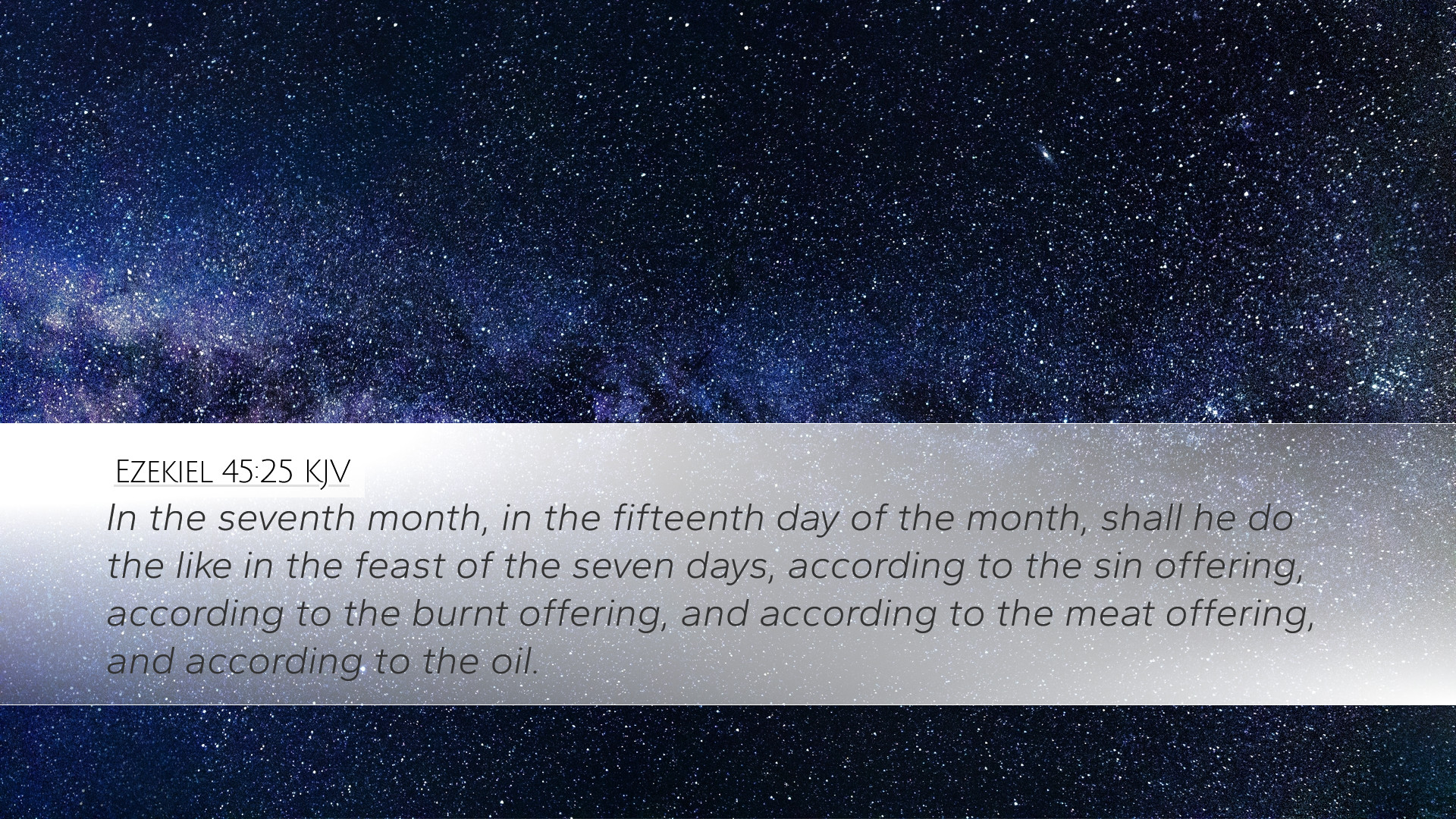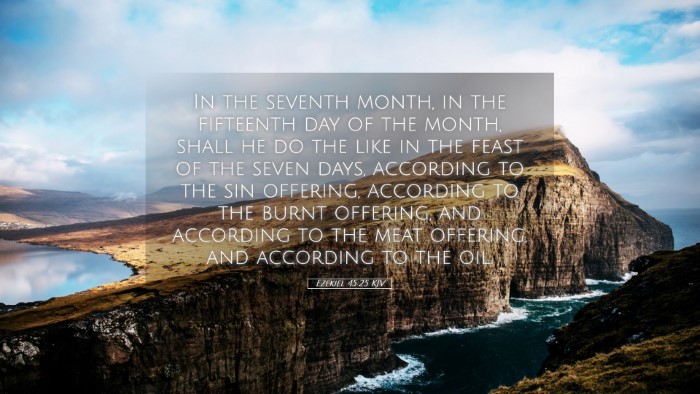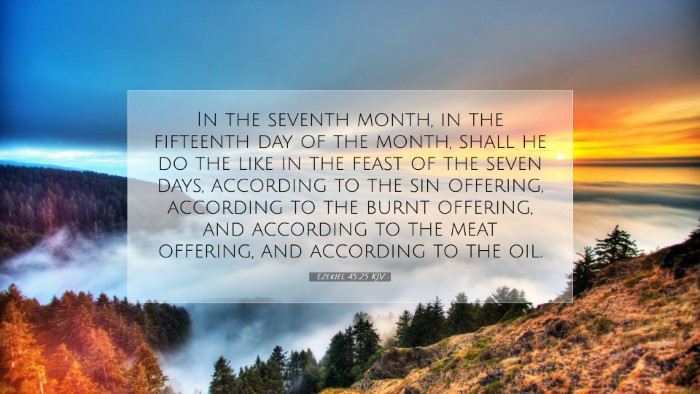Commentary on Ezekiel 45:25
Ezekiel 45:25: "In the seventh month, in the fifteenth day of the month, shall he do the like in the feast of the tabernacles, according to the sin offering, according to the burnt offering, and according to the meat offering, and according to the oil."
Introduction
This verse belongs to a portion of Ezekiel that concerns the vision of a restored temple and the laws governing worship and offerings in Judah. It has elements that remind one of the Torah's sacrificial system while also exhibiting distinct features pertinent to the eschatological setting envisioned by the prophet Ezekiel.
Contextual Background
To fully grasp Ezekiel 45:25, it is paramount to understand the context of the prophetic ministry of Ezekiel amidst the Babylonian exile. The Israelites longed for restoration, which Ezekiel addresses through elaborate descriptions of temple worship.
The Thematic Significance of the Feast of Tabernacles
The reference to the "feast of the tabernacles" is significant in many ways:
- Historical Context: This feast commemorated the Israelites' wilderness wanderings, inducing a reflective stance on God's provision and guidance during trials.
- Theological Implication: It underscored themes of dependence on God and His faithfulness. The offerings specified in this verse reiterate the communal aspect of worship, whereby the people return their thanks and seek atonement.
- Eschatological Outlook: Ezekiel's vision is not solely prophetic but eschatologically oriented, looking forward to a time of divine presence among his people.
Commentary Insights
Matthew Henry: Henry draws attention to the significance of the timing of this feast, noting that it is conducted in the seventh month, which spiritually symbolizes a time of completion and fullness. It is not merely an observance of tradition but a step toward restoration.
Albert Barnes: Barnes emphasizes the systematic approach taken in the sin offerings and burnt offerings, indicating a comprehensive acknowledgment of sin. The provision for these sacrifices emphasizes the principle that God provides a way for His people to atone for their transgressions.
Adam Clarke: Clarke elaborates on the correlation between the offerings and their necessity in maintaining a right relationship with God. He posits that the specifics given herein serve to underline God's desire for order and intentionality in worship, beyond mere ritualistic observance.
Practical Applications for Worship
The lessons from Ezekiel 45:25 are manifold. For contemporary worship settings, there are elements of reverence to consider:
- Intentional Worship: Like the Israelites, modern believers are called to engage deliberately in their worship practices, understanding their theological implications and significance.
- Community and Connection: This verse reminds congregations of the communal nature of worship, inviting believers to gather together to celebrate God's faithfulness, confession, and assurance of forgiveness.
- Regular Reflection: The feast's regular observance encourages today’s church to set aside time for remembrance, allowing past experiences of God’s provision and guidance to inform current faith journeys.
Conclusion
In conclusion, Ezekiel 45:25 serves not merely as a historical or ritualistic note but as a profound invitation for believers to reflect on God's providence and engage meaningfully in worship. Its implications resonate far beyond ancient practices, providing a template for understanding God's covenant with His people and the seriousness of sin and repentance in the life of the faithful.


